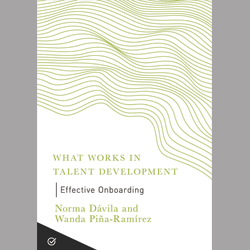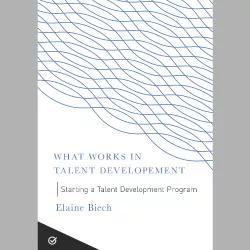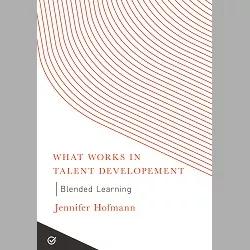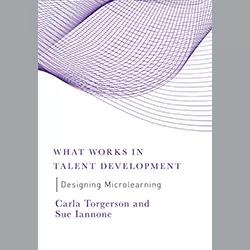Book
The What Works Bundle
Do you want to be a well-rounded talent development practitioner? You need the What Works bundle!

| Member | Non-Member |
|---|---|
$101.93 | $118.93 |
More Info
Written for trainers, by trainers, these practical guides give you all the tools you need to be a well-rounded talent development practitioner.
Specializing in different areas of talent development, each book provides the guidance you need to help you design, implement, and evaluate effective resources and programs.
Save 15 percent when you buy the bundle!
Book Details
Publisher: ATD
Release Date: January 2020
Format: Paperback
Product Code: 141823
Included in This Product

Effective Onboarding
Onboarding turns the key, opening the door to talent development
Investing in onboarding means investing in employee success and the business of the future. Effective onboarding programs both increase and...
By Norma Dávila, Wanda Piña-Ramírez on September 18, 2018

Starting a Talent Development Program
From the esteemed Elaine Biech comes What Works in Talent Development: Starting a Talent Development Program. Developing talent in your organization is important, and this publication will help you to do so. Biech interweaves best practices with the latest technology to offer many templates, tools, worksheets, and tips to help you explore how to support your organization into the future. Get this publication if you need guidance on how to start, design, and implement your talent development program.

Blended Learning
In What Works in Talent Development: Blended Learning you’ll have easy-to-apply techniques to ensure your blended learning program is a success. Jennifer Hofmann combines the latest findings in adult learning with her time-tested best practices to deliver powerful results. Pro tips, resources, and tools included throughout help you quickly locate concepts and ideas to plan, design, implement, and evaluate a blended campaign.

Designing Microlearning
In today’s workplace, learners move quickly. That’s why effective microlearning is so important. In Designing Microlearning, experts Carla Torgerson and Sue Iannone offer a practical approach to introducing and creating effective microlearning using MILE, the MIcroLEarning Design model. Discover how to identify performance objectives, determine program technology and structure, promote what you’ve designed, and monitor, modify, and evaluate your microlearning.
